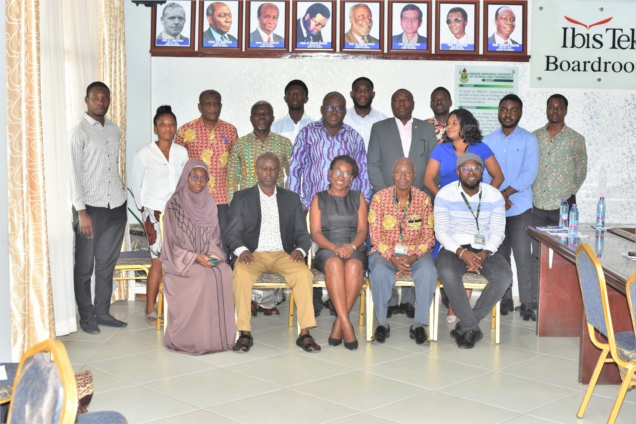Getting water from the ground is capital intensive and laborious.
Climate change has also worsened the reliability of these groundwater systems.
The Kwame Nkrumah University of Science and Technology (KNUST), is therefore employing artificial intelligence to predict water availability in the ground.
The project is dubbed Rapid Assessment of Groundwater Availability (RAGA).
According to the Principal investigator, Dr. Cyril Boateng of the Department of Physics, the project will build an AI-based system for groundwater which can be accessed by the public through their smartphones and computers.
“We seek to develop an innovative web-based artificial intelligence driven open-source framework to predict groundwater availability in Ghana.
“We intend to achieve this aim by building a database of spatio-temporal hydrogeological, and climate variables; developing AI algorithms and workflows for integration of varied data sources and prediction of groundwater availability and developing an open-source web-based application for rapid groundwater availability assessment to be used by stakeholders and the general populace,” he explained.
Partners in the 1-year project include, Departments of Physics, Meteorology and Climate Science, Computer Science and Geological Engineering of KNUST. Also involved are the Water Resources Commission and the CSIR-Water Research Institute.
Provost of the College of Science, Prof. Leonard Amekudzi is happy the project will build the profile of early-career researchers and foster research collaboration.
“The project is seeing the College of Science collaborating with the College of Engineering, CSIR among others. The project team is mainly made up of early-career researchers and it’ll therefore build their capacities,” he said.
Prof. Amekudzi added: “The project will contribute to KNUST’s agenda of carrying out impactful research since water accessibility has become critical in the face of the illegal mining menace.”
The project is part of the Responsible Artificial Intelligence Network for Climate Action in Africa (RAINCA) Hub.
The hub is funded by the Canadian International Development Center (IDRC) through three institutions, namely the West African Science Service Center on Climate Change and Adapted Land Use (WASCAL), the Regional Universities Forum for Capacity Building in Agriculture (RUFORUM), and AKADEMIYA2063.
Latest Stories
-
Cowboy Beyoncé dazzles nearly sold-out stadium
22 minutes -
Judge threatens to remove Diddy from courtroom
33 minutes -
Trump’s new ban dodges pitfalls faced by last attempt, experts say
45 minutes -
Trump suspends foreign student visas at Harvard
57 minutes -
Tesla shares tumble as Trump-Musk feud erupts
1 hour -
Trump and Musk enter bitter feud – and Washington buckles up
1 hour -
Footballer jailed for £600k drugs smuggling plot
2 hours -
Lamine Yamal shines as Spain beat France in nine-goal thriller
2 hours -
Gauff battles past Keys to reach semi-finals
2 hours -
Gen Z aim to deny history-chasing Djokovic
2 hours -
Sabalenka takes out Swiatek to reach French Open final
2 hours -
Judge temporarily blocks Trump’s ban on foreign Harvard students
3 hours -
Financial planning possible without steady income – Kush Mkushi
3 hours -
Witness testifies that Diddy dangled her over apartment balcony
3 hours -
Dumsor levy: Sulemana Braimah demands accountability for GH¢26bn fuel taxes paid in 2024
4 hours

